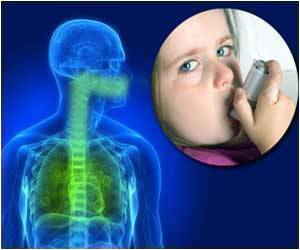- Asthma affects 25 million people in the United States and exposure of Cockroach detritus allergen causes severe form of asthma.
- A recent study finds neonatal vaccination with bacteria on newborn mice can suppress asthma in adults.
- Neonatal vaccination with Enterobacter that produces alpha 1,3 glucan are found to be protective.
Previous studies which were carried in 2012 and 2015, showed neonatal vaccination of mice with Streptococcus pyogenes and Streptococcus pneumoniae bacteria suppressed asthma after exposure to fungus allergens like Aspergillus fumigatus and house dust mites.
Kearney , Professor in Microbiology in UAB School of Medicine said, "It's pretty amazing, "We started doing neonatal immunizations in all three asthma models, and we found that all three were protected against asthma-like symptoms."
The author also said that there can only be protection during the childhood. He also added that "We do not see protection if we immunize the adults, "The exposure has to happen early -- in human equivalents, probably within the first two years. The kinds of immune cells that appear early in life appear to change later in life."
Around 25 million people in the United States are affected by asthma out of which 7 million are children. Cockroach- derived allergens are associated with severe asthma.
"All three models are B cell-mediated," author said.
The research team concluded that prophylaxis of neonatal vaccination with bacteria containing alpha-1,3 glucans during early life are potential in suppressing long-lived asthma due to cockroach detritus.
Source-Medindia














